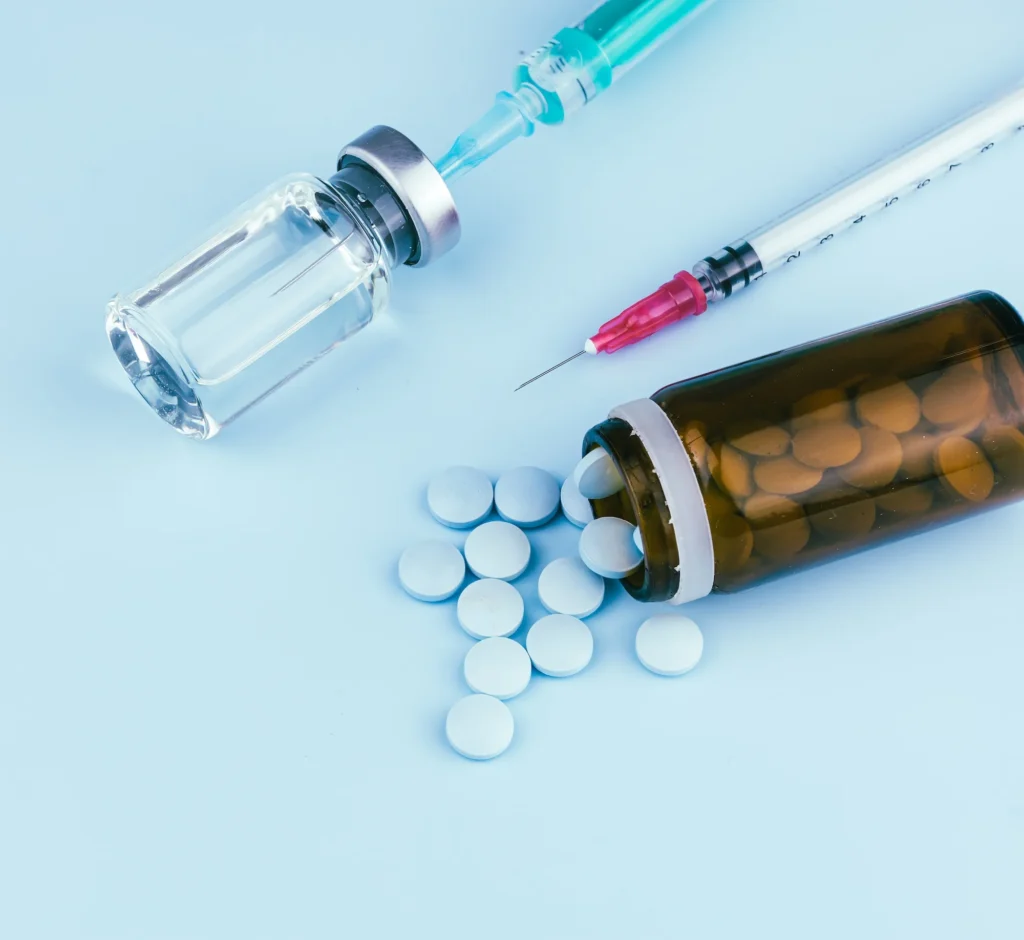Erectile dysfunction (ED) is a common condition impacting millions of men globally, often causing emotional challenges and relationship difficulties. While traditional treatments like medications and lifestyle adjustments have proven effective for many, some seek out alternative remedies to address this issue.
Among these unconventional options, hydrogen peroxide has sparked interest. Known primarily for its disinfectant properties and various health claims, it has been suggested by some as a potential solution for improving circulation and managing ED. But does hydrogen peroxide truly have a role in treating erectile dysfunction, or are these claims unsupported by science?
In this blog, we’ll explore the science behind hydrogen peroxide, its suggested use for ED, and safer, more effective alternatives for addressing this condition.
Understanding Erectile Dysfunction (ED)
Erectile dysfunction (ED) is the inability to achieve or maintain an erection sufficient for sexual activity, impacting men’s self-esteem, relationships, and quality of life. It can result from physical causes like cardiovascular disease, diabetes, and low testosterone, as well as psychological factors such as stress, anxiety, and depression. Lifestyle habits, including smoking, poor diet, and lack of exercise, also contribute to ED.
Treatment focuses on addressing underlying causes and includes lifestyle changes like regular exercise, a healthy diet, and quitting smoking. Psychological counseling may help for mental health or relationship issues. Medical options include PDE5 inhibitors (e.g Viagra, Cialis), which enhance blood flow to the penis, as well as injectable medications, vacuum erection devices, or penile implants for severe cases. Hormone therapy may be effective for men with low testosterone, and emerging therapies like shockwave treatment show promise.
Recommended: 8 Common Causes Of Erectile Dysfunction In Young Men
Can Hydrogen peroxide be Used for Erectile Dysfunction?
Hydrogen peroxide is not a safe or effective treatment for erectile dysfunction (ED). While it is a common disinfectant used for cleaning wounds and sterilizing surfaces, there is no scientific evidence to support its use for treating ED. ED is a condition influenced by factors such as blood flow, hormonal imbalances, psychological issues, or underlying medical conditions, and treatments should be based on these causes.

Some anecdotal claims suggest that hydrogen peroxide might improve circulation or oxygenation, but these claims lack credible research support. Moreover, applying hydrogen peroxide to sensitive tissues or using it internally can cause irritation, tissue damage, and other adverse effects, potentially worsening the problem.
For ED, evidence-based treatments include medications like sildenafil (Viagra) or tadalafil (Cialis), lifestyle changes, therapy, and addressing any underlying health conditions. It is essential to consult a healthcare provider for proper diagnosis and treatment rather than relying on unproven remedies like hydrogen peroxide, which could be harmful.
Recommended: Can I Use Hydrogen Peroxide For Prostate Health?
Potential Risks and Side Effects of Using Hydrogen Peroxide For Erectile Dysfunction
Using hydrogen peroxide as a treatment for erectile dysfunction (ED) is highly discouraged due to its significant risks and potential side effects. While hydrogen peroxide is a common antiseptic, its use in ways not medically approved, particularly for conditions like ED, can lead to harmful outcomes. Below are the detailed risks and side effects:
Tissue Damage and Irritation
Hydrogen peroxide is a potent oxidizing agent that can harm sensitive tissues, such as those in the genital region. When applied topically, even in diluted forms, it may cause chemical burns, redness, and irritation. Over time, repeated exposure can lead to chronic inflammation, scarring, or disruption of the skin’s natural barrier, leaving the area more susceptible to infections.
Pain and Discomfort
The caustic nature of hydrogen peroxide often results in a stinging or burning sensation when applied to the skin. This discomfort is amplified in sensitive areas like the genitals, where nerve endings are more concentrated. The pain can exacerbate stress or anxiety related to ED, worsening both physical and psychological symptoms.
Increased Risk of Infection
Paradoxically, while hydrogen peroxide is used as a disinfectant, it can damage healthy tissue and delay wound healing. Applying it to the genital area may create micro-tears or ulcers, which become entry points for bacteria and other pathogens, increasing the likelihood of infections such as cellulitis or abscesses.
Toxic Effects if Ingested

Some individuals mistakenly believe that ingesting hydrogen peroxide in small amounts can improve circulation or address ED. However, ingestion is extremely dangerous and can cause nausea, vomiting, and abdominal pain. Ingesting higher concentrations or large amounts may lead to life-threatening complications, such as:
- Oxygen Embolism: The rapid release of oxygen gas into the bloodstream can create air bubbles, obstructing blood flow and causing organ damage, strokes, or death.
- Gastrointestinal Burns: Hydrogen peroxide irritates and damages the lining of the stomach and esophagus, potentially leading to bleeding or perforation.
Worsening of Psychological Stress
Using unproven and potentially harmful remedies can heighten feelings of frustration, anxiety, and hopelessness in individuals already dealing with ED. Psychological factors, such as stress and low self-esteem, are significant contributors to ED, and the use of ineffective treatments can exacerbate these issues.
Potential Allergic Reactions
Hydrogen peroxide can trigger hypersensitivity reactions in some individuals, leading to swelling, itching, and even systemic effects like difficulty breathing in severe cases. Applying it to sensitive areas increases the likelihood of an exaggerated allergic response.
Recommended: How Much Dark Chocolate Should I Eat For Prostate Health?
Safe and Effective Alternatives to Treat Erectile Dysfunction
There are various safe and effective alternatives for treating erectile dysfunction (ED), each addressing different underlying causes, whether physical, psychological, or lifestyle-related.
Some of these alternatives may include:
Lifestyle Modifications
Making changes to your lifestyle can have a significant impact on erectile dysfunction. Regular exercise improves cardiovascular health and blood circulation, which are critical for erectile function. A healthy diet, such as the Mediterranean diet, supports vascular health and hormonal balance. Avoiding excessive alcohol, quitting smoking, and managing stress can further enhance sexual performance.
Medications
Phosphodiesterase-5 inhibitors, such as sildenafil (Viagra) and tadalafil (Cialis), are commonly prescribed to treat ED. These medications enhance blood flow to the penis, allowing for an erection during sexual stimulation. They are effective for many men but require a prescription and come with potential side effects like headaches and flushing.
Testosterone Replacement Therapy (TRT)

For men with low testosterone levels, TRT can improve libido and erectile function. This treatment involves administering testosterone through injections, patches, or gels to restore hormonal balance. It is most effective for men whose ED is linked to low testosterone.
Psychotherapy and Counseling
ED often has psychological components, such as anxiety, depression, or relationship issues. Cognitive-behavioral therapy (CBT) helps address performance anxiety and negative thought patterns. Couples therapy can improve communication and emotional intimacy, reducing the psychological barriers to sexual satisfaction.
Mechanical Devices
Vacuum erection devices (VEDs) are non-invasive tools that create a vacuum around the penis, drawing blood into the erectile tissue. A constriction ring is used to maintain the erection. These devices are safe and effective for many men, particularly those who cannot take medications.
Recommended: Where do You Put TENS Pads for Erectile Dysfunction?
Surgical Interventions
For severe or treatment-resistant ED, penile implants are a surgical option. These implants can be inflatable or semi-rigid, allowing men to achieve reliable erections. Vascular surgery, which addresses blood flow issues, may be an option for younger men with specific vascular problems.
Pelvic Floor Exercises
Strengthening the pelvic floor muscles through exercises like Kegels can help improve erectile function. These exercises enhance the strength and control of the muscles involved in maintaining an erection.
Recommended: Can Kegels Help With Hemorrhoids?
Conclusion
While hydrogen peroxide has been explored for its potential to improve blood circulation and promote healing, its use as a treatment for erectile dysfunction (ED) is not supported by scientific evidence and carries potential risks. The application of hydrogen peroxide, especially in high concentrations or without proper guidance, can lead to irritation, tissue damage, or other harmful side effects. Given the lack of reliable clinical studies supporting its efficacy for ED, it is advisable to seek proven, safe alternatives such as medications, lifestyle changes, or therapies recommended by healthcare professionals. Always consult with a healthcare provider before considering any unconventional treatments, including hydrogen peroxide, to ensure safety and effectiveness in managing erectile dysfunction.
